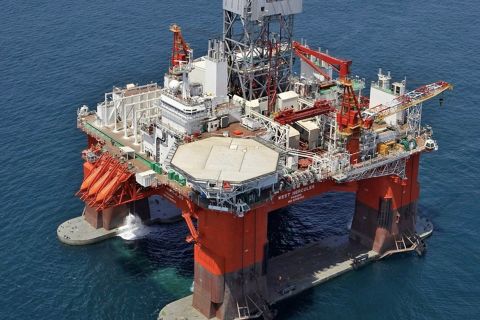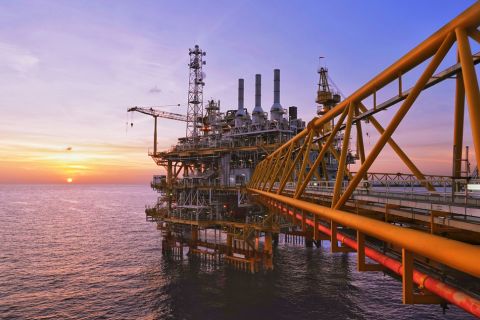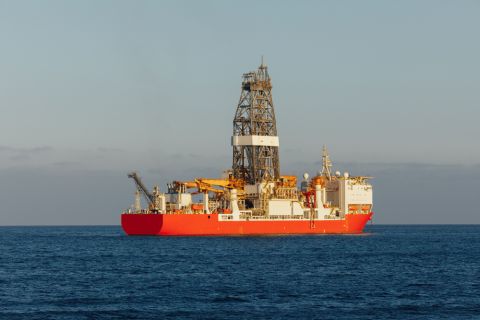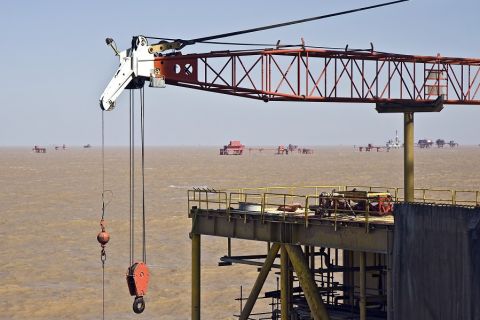An early resumption of peace talks on ethnically-split Cyprus was “impossible,” President Nicos Anastasiades said Feb. 28, accusing rival Turkey of violating international law in a row over offshore oil and gas exploration.
Cyprus and Turkey are at odds in a race to tap hydrocarbons in the eastern Mediterranean, an area which has yielded some of the world’s largest natural gas finds in the past decade but which has also brought decades-old grievances to the surface.
A vessel charted by Italy’s state-controlled Eni was unable to reach an area Cyprus has licensed for drilling because of Turkish military maneuvers in a two-week standoff in February.
The two states do not have diplomatic relations, and Ankara maintains that Greek Cypriots, who run Cyprus’s internationally-recognized government, are violating either Turkish or Turkish Cypriot rights.
Greek Cypriots say the same about Turkey, and the dispute appears to leave little room for compromise.
“Unfortunately Turkey, and our Turkish Cypriot compatriots, appear to be not only unwilling [to re-engage in talks], but with additional violations of international law and unacceptable demands render the resumption of talks impossible, at least at the present time,” Anastasiades told the country’s parliament.
He said that he would be willing to re-engage in dialogue if Turkey rescinded its “unlawful actions” and Turkish Cypriots their “unacceptable claims.”
The veteran conservative started a second five-year term at the helm of the island nation on Wednesday.
Cyprus was split in a Turkish invasion in 1974 triggered by a brief Greek-inspired coup and repeated attempts at reconciliation have failed. Greek Cypriots live in its south and Turkish Cypriots in the north.
Natural gas discoveries by Egypt and Israel in areas not far from Cyprus have given sharper focus to the island’s standoff.
The discoveries could either add impetus to a deal on Cyprus, or impede resolving a complex conflict on power-sharing and boundaries that concern tens of thousands of internally displaced people on either side of the divide.
Anastasiades said his government had prepared legislation to create a sovereign hydrocarbons fund. In previous consultations, the two sides had also agreed on how potential revenue would be distributed, he said.
Eni and France’s Total reported in early February a promising natural gas field south of Cyprus, which they said looked geologically similar to the mammoth Zohr Field offshore Egypt.
Recommended Reading
Second Light Oil Discovery in Mopane-1X Well
2024-01-26 - Galp Energia's Avo-2 target in the Mopane-1X well offshore Namibia delivers second significant column of light oil.
CNOOC Sets Increased 2024-2026 Production Targets
2024-01-25 - CNOOC Ltd. plans on $17.5B capex in 2024, with 63% of that dedicated to project development.
Seadrill Awarded $97.5 Million in Drillship Contracts
2024-01-30 - Seadrill will also resume management services for its West Auriga drillship earlier than anticipated.
Oceaneering Won $200MM in Manufactured Products Contracts in Q4 2023
2024-02-05 - The revenues from Oceaneering International’s manufactured products contracts range in value from less than $10 million to greater than $100 million.
CNOOC’s Suizhong 36-1/Luda 5-2 Starts Production Offshore China
2024-02-05 - CNOOC plans 118 development wells in the shallow water project in the Bohai Sea — the largest secondary development and adjustment project offshore China.





